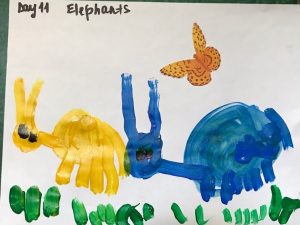A Mother’s Own Words Today (July 2020)
A Real-Life Testimony of Tomatis
A 3.5-year-old boy referred for Tomatis by a neuropsychologist, presented with:
- high activity level
- not attending
- very hyper-sensitive to sounds like vacuum cleaners, children crying, etc.
- behavioral issues
- excessive loud vocalizations
- not following directions
- limited word use with poor articulation
- not playing with other children
Are you seeing any changes?
“Yes! He is quieter and more attentive. I think he became quieter around day 4. He listens to us and repeats a lot of words even when we don’t ask him to. When we talk to him, he’s trying to communicate better. His pronunciation has also improved. I think all the changes within last two weeks in his daily routine, plus new place [our vacation home] with lake and sand every day, was a good base and the right time for us to start these listening sessions. We (all 4 adults) see how he improved!
He was watching the iPad yesterday and was trying to sing a song… It was “Twinkle Twinkle Little Star” … I felt like he knew the words. He also pronounced the words correctly, everybody understood.
I read about Tomatis before we started. A lot of people were seeing changes after 2 full therapy parts (14 days + 14 days). We see changes now.”
Seeing improvements so soon is not uncommon. This is one of the reasons why, as a professional, I am so committed to the Tomatis Method.
Our initial goal was to decrease his hyper-sensitivity because it has such a global effect on how we function. Hyper-sensitivity is painful, as the individual is forced to deal with a constant barrage of sounds. The brain is not employing its ability to screen out what’s important from background noise. Hyper-sensitivity drives individuals into a “fight or flight” response. It’s not possible for the brain to learn and function adequately while in a continuous heightened state.
Once we decrease hyper-sensitivity the nervous system is better positioned to process the meaning of input and figure out what is important. Once the brain can get that far, it’s much more capable of formulating an appropriate response.
What happened
This child no longer finds the incoming stimuli painful; he is better able to attend and respond to it. We can see it in his:
- improved attention,
- desire to use words to communicate
- attempts to sing songs
- being more cooperative
These improvements have a tremendous benefit to his behavioral management and increased ability to learn. As the mother reports, it’s exciting to see such a leap in the first intensive. It gives us great hope for the next intensive and beyond.


